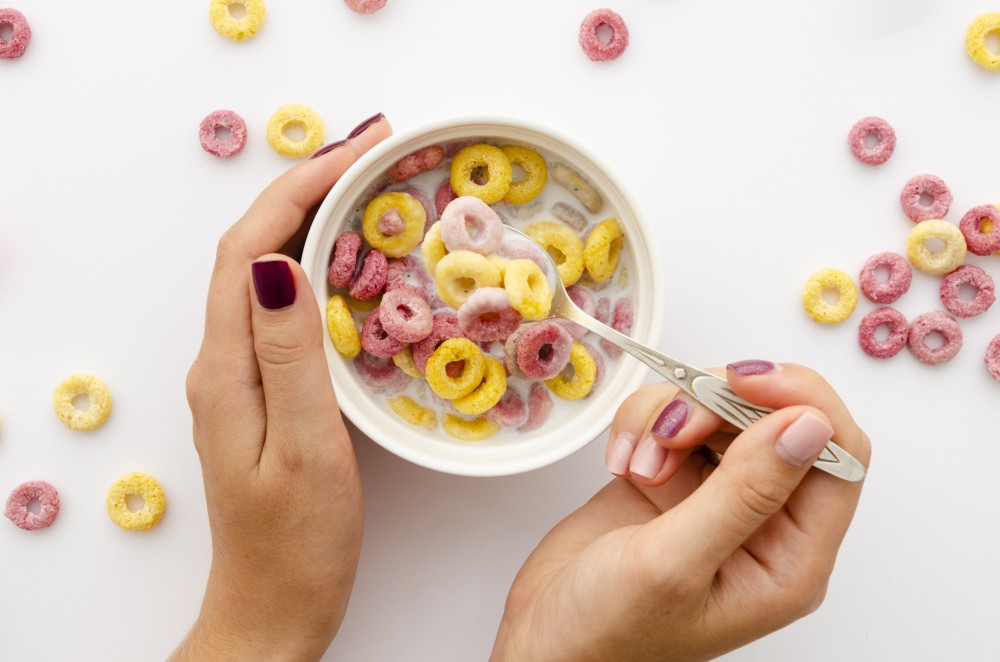
Walk down any supermarket aisle and you will find shelves lined with food products marketed as healthy, low-fat, sugar-free, fortified with vitamins, or packed with probiotics. But not all that glitters is gold. Many so-called healthy foods are actually loaded with hidden sugars, artificial additives, or lack real nutritional value.
Lets uncover some of the most common culprits that might be doing more harm than good.
1. Breakfast Cereal
They often scream high in fiber or whole grain on the box, but many popular cereals, especially those aimed at kids, are packed with added sugars, refined carbs, and artificial flavors. Even those labeled natural or multi-grain can cause a spike in blood sugar, leaving you hungry again within hours.
Smart Alternative - Unsweetened oats or whole-grain cereals with at least 3–5g of fiber and less than 5g sugar per serving.
2. Flavored Yogurt
Yogurt is a good source of calcium and probiotics, but flavored varieties can contain as much sugar as a dessert. Fruit-flavored, low-fat yogurts often compensate for taste by adding syrup, concentrates, or sweeteners.
Smart Alternative: Go for plain, unsweetened Greek yogurt and add your own fresh fruit or a drizzle of honey.
3. Probiotic Drinks
These tiny bottles promote gut health, but most are high in sugar and contain only a limited number of probiotic strains. Drinking them daily without considering sugar intake may counteract the intended benefits.
Smart Alternative: Unsweetened/ low-sugar probiotic-rich foods like kimchi, kefir, natural yogurt or probiotics capsule
4.Dried Fruit
Dried fruit may seem like a healthy, convenient snack, after all, it is just fruit, right? Not quite. Most dried fruits are concentrated in sugar and calories due to the removal of water. Some are also coated with added sugar, preservatives and oil to enhance shelf life and appearance.
A small handful of dried mango or raisins can easily contain the sugar equivalent of several fresh fruits, but without the satisfying bulk or hydration.
Smart Alternative: Snack on fresh fruit when possible. If you enjoy dried fruit, go for unsweetened, minimally processed versions and keep your portion small (about 1 tablespoon).
5. Fruit Juices and Smoothies
Even 100% fruit juice contains a high concentration of natural sugars without the fiber you get from whole fruits. Store-bought smoothies can also be calorie bombs packed with syrups, ice cream, or sweetened yogurt.
Smart Alternative: Eat whole fruits or blend your own smoothies at home with minimal added ingredients.
Marketing can be deceiving. Just because something is labeled natural, low-fat, immune-boosting, or fortified with vitamins does not mean it is automatically healthy. Always check the nutrition label, look at the sugar content, serving size, and ingredient list.
A simple rule of thumb: the fewer the ingredients (and the more you can recognize them), the better.
Subscribe for our latest news and be the first to know about our offers.